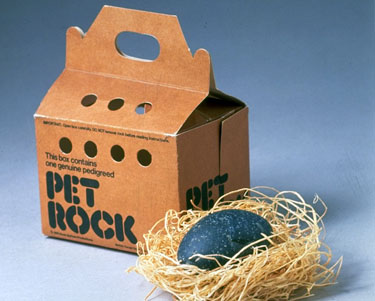I've been on a roll with lists, so I'll continue this blog post with the same format. The experience of 75 start-ups has taught me a few lessons about starting great companies. The internet provides an awesome opportunity to create businesses, but it's also a trap for eager entrepreneurs that try to build the next *big* thing.

Here are 16 ideas an entrepreneur can use to get a successful web business to market faster. There's a lot more that could be written for each idea, but I'll let these ideas brew over the coming weeks before elaborating on each point.
- Prototype key concepts first. The biggest failure of early stage companies is failing to create prototypes. Prototypes are quick and easy ways to learn potential problems with a concept. Too many companies want to talk about product issues instead of understanding the real problems a prototype could reveal.
- Start with a small team.Too many cooks in the kitchen can slow down the idea generation process. Error on the side of more doers than thinkers.
- Stay away from marketing surveys. Your customer won't help you build something revolutionary. Build a great product and then solicit their feedback.
- Find a role player. Not everyone can be a entrepreneur. Find a team that can work together under stressful situations. Complimentary skills are helpful for getting stuff done.
- Sketch ideas out. Don't sit in front of Power Point or Photoshop. Grab a white board and start working through screens. Graphics programs will slow you up.
- Iterate quickly. Fail fast. Find ways to quickly test interactions with people.
- Use tactics. You can't go from strategy to implementation and expect great results. Use sketching, prototyping, observing and mind mapping to test your strategy.
- Ask questions. Lots of questions. Find other entrepreneurs and people running businesses who can help you shape the product. Don't be worried about sounding dumb.
- Find advisers. Find a couple of reliable business advisers who can offer advice when your stuck. Financial, technical or marketing professionals are extremely valuable. If you have to pay a little for someone you trust, it might be worth it.
- Keep your start-up costs minimal. Find as many ways to reduce your costs as possible. Try to get by without spending money on items that you can do without- desks, chairs, and office equipment (these can be purchased when you have the resources).
- Do more with less. It seems obvious, but unless you're challenged to limit your time or budget, you'll spend unnecessary time doing dumb stuff. It's all about momentum.
- Start sales early. Find customers for your product or service on day one. You may not receive money from them, but their information will be valuable to find your first paying customers.
- Timebox development. I'll get some push back here, but it's important to limit development time. Find a market for your product before you build something truly scalable. You're going to have to refactor your code anyway.
- Don't worry about idea theft. Ideas are a dime a dozen. Getting ideas into the marketplace is much harder.
- Create conversations. Great ideas don't happen in a vacuum. Find people who can help you refine your vision.
- Keep features minimal. There's nothing more discouraging than keeping up with a runaway feature list. If you can't find value in a few key features then you need to rethink your business.
Do you have another insight or thought?